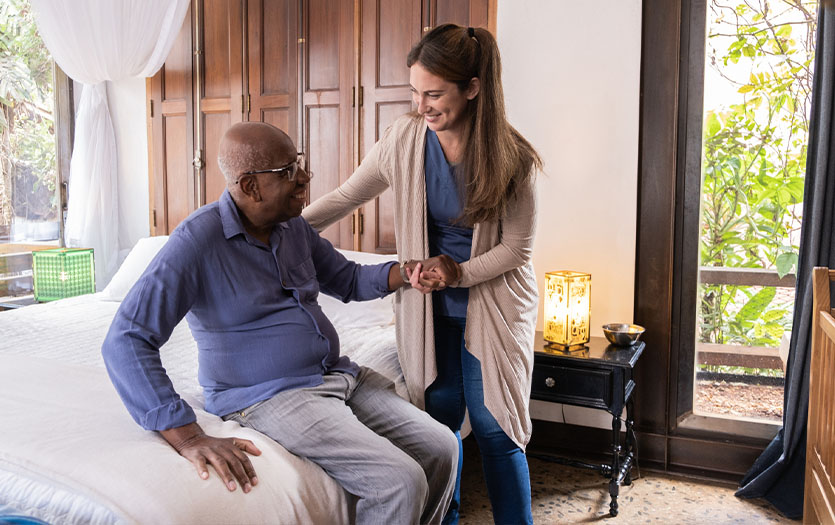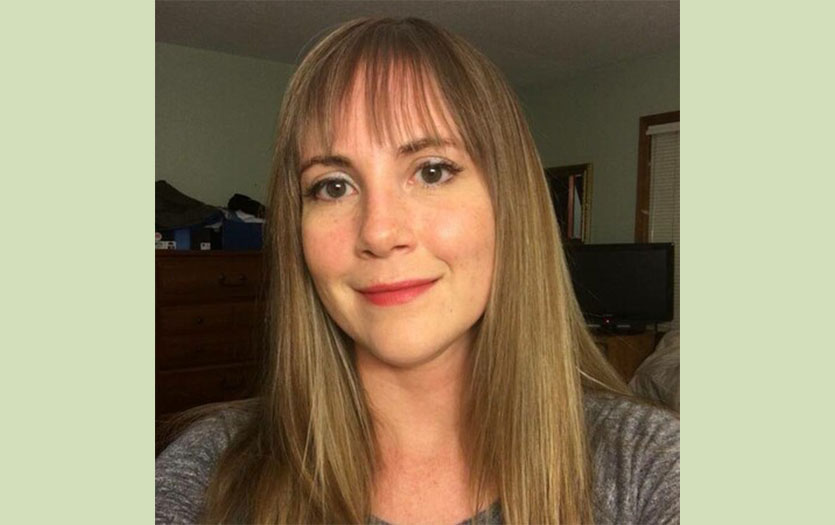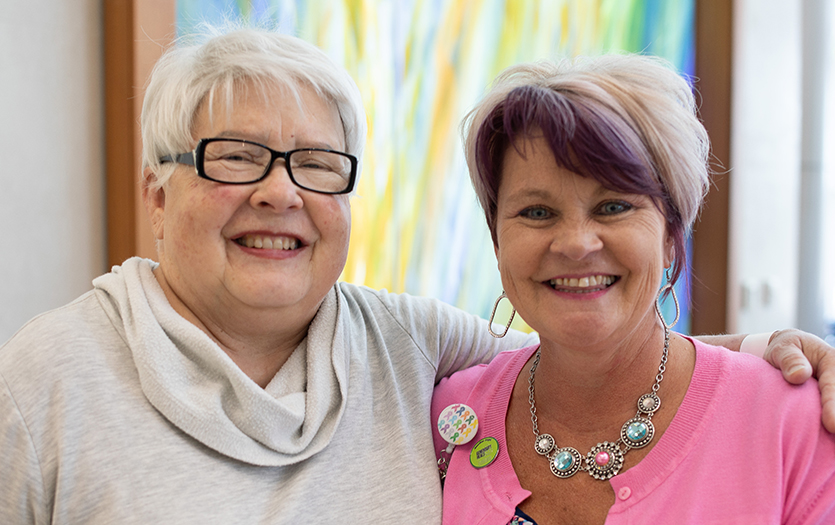
Serving patients and families in DeKalb, Steuben, Noble and LaGrange counties, Amber White, LCSW, social worker, Parkview Home Health & Hospice, is an expert connector, providing guidance for the needs that arise during a health setback. She recently shared more about her role and the biggest misconceptions about social work, and how she bridges the gap between local resources and patient pain points.
What is a home health social worker?
Access to a social worker is a referral-based piece of Parkview’s home health care model. Typically, a home health nurse or therapist will alert me if a patient would benefit from my help navigating resource needs, education or long-term considerations. I assist mostly older individuals, but we do get younger patients and infants who need home health care.
People think of a social worker, and they think we're going to come and put them in a nursing home. Or, if the case involves a child, they think I’m going to come and take away their child. I always just laugh with them and assure them that is not my job. I’m really just there to listen, have conversations and hopefully provide education and resources that might help. Most families just have no idea what’s available. It can ease their stress quite a bit, just presenting options.
I also provide support to our home health caregivers–our nurses and therapists–because their roles are very taxing. We spend a lot of time giving to our patients, but ultimately, as I have to remind them, individuals are going to make their own decisions. There are things we have the power to help with, and things that we don’t.
Connecting patients common needs
Currently, I assist patients in some of our smaller northern counties, and, while there is a lot of overlap on resources, many of the non-profits who provide support for these populations have their own chapter by county. A big part of my job is staying on top of all of the options that are available to residents in the areas I serve.
Every patient and every case is unique, but some of the most common needs I see are:
Transportation
Having a ride to and from the hospital and/or appointments is a huge challenge in these northern counties. Fort Wayne has quite a few agencies that patients can call, but usually there’s only one option, such as the Council on Aging, for local transport in our northern communities. This is particularly challenging (and expensive) for patients who have frequent appointments outside of their county.
Meals
Many of our elderly patients need some sort of nutritional support. We often see them consuming whatever's convenient, like fast food, or provided by family. This can mean unhealthy amounts of sodium and carbohydrates or waiting for quality food. We refer these folks to Meals on Wheels quite a bit.
Caregivers
A lot of our patients need extra help at home, and I try to connect them to caregivers and then work through the financial aspect of that support.
Mental health
Many of our patients are isolated, experiencing discomfort of physical changes, and unable to leave their homes, so the mental health aspect of home health care is critical. But I always tell people, we're only in their lives for a short time, so sustainable support is imperative. With home care, we get the number of days approved by insurance, and then our walk with the patient ends. If someone is really struggling, I try to connect them to a local resource as an ongoing avenue for support. I can also provide virtual or phone options for immediate access.
The same goes for family differences. I’m always happy to facilitate conversations and address issues between adult children and the parent/patient, but they really need to establish a long-term professional to assist them.
If a patient is displaying symptoms of depression, our nurses and therapists are really good about recognizing the signs and communicating that back to the patient’s doctors. Individuals receiving home care have a hard time getting out of the house for therapy or counseling sessions, so by starting with their primary care provider, the doctor can evaluate and see if the patient would benefit from medication while they are recovering or regaining strength, and then recommend a long-term mental health treatment plan.
Crucial conversations
Working with a primarily elderly population, my visits often lead to conversations about the future. I want to help them plan for the next step. Serving rural counties, I see a lot of farmers. Men and women of that generation and profession aren’t used to asking for help–they grew up believing in grit, and pushing through, even if you’re struggling. I try to get them to think about what their threshold is. When would enough be enough, and something would need to change?

Often, I see patients on multiple occasions, so on my first visit, I try to plant seeds and present options. Then, sometimes months later, when I return, I pick the conversation back up. Many patients have an idea in their head about what’s available or possible, without having done any research, so I try to be that presence to help educate them on what's actually available now or in the future.
Sometimes, the next step is hospice. Patients are tired of going the treatments, appointments and medications that come with managing chronic diseases, and they just want to live the days they have left. I help walk them through what that would look like and make that transition as easy as possible.
Advance Care Planning (ACP) conversations are a big piece of what I do, particularly since Indiana updated advance directives. We provide printed materials and help our patients think about who their “person” is. This is extremely important in all situations, but specifically when it’s unclear who that decision maker will be. I point out that ACP helps the family and the hospital when the patient can’t speak for themselves. It makes things clear. I even help them make phone calls in some cases, because it can be uncomfortable telling someone that they are your person and this is what you want. But it’s so important.
A rewarding role
Over the years, I’ve worked in home care settings and in an office, doing counseling, and there really is something about being in someone's home and seeing what they live with. It gives you that context from to draw a deeper understanding. It makes it more personal, just being in their space.
I’ve seldom left an appointment and thought I didn't have some sort of useful information or answer to a question that gave them some piece of mind, and I like that about my work. A lot of patients don’t feel like they can be entirely honest with their loved ones, because there’s that expectation to keep fighting and pushing on. I enjoy being that person they can have truthful conversations with. A lot of times, people will say I’m the first person they’ve said something to, which is big, because the first step for a lot of people is just saying their wishes out loud.
The truth is, as I tell my patients, most people are going to reach a point in their life when they need help. I want to know what that looks like for our patients, and just asking them, opens so many doors to conversation. It’s like a tiny kernel that eventually leads us to the right resources.
So much of what I do is empowering people to make decisions and put the control in their hands. How do you want to spend your time? What treatment feels tolerable to you? Those conversations are tough, but they can say whatever they want to me, and I won’t push them in any particular direction. But giving them permission to have that power over their future is incredibly rewarding.
For more information about how Parkview Home Health can provide you or a loved one with services in the comfort of your own home, call 260-373-9800.



